Desi cow ghee has turned out to be very well-known in specific circles of late. It has been commended as a healthy option as compared to butter that gives extra advantages.
Still, some people have addressed whether ghee is better than regular butter or may even act hazardous for human well being.
Desi cow ghee is viewed as more delicious than regular butter, animal fats, or frying oils when utilized for cooking. While lovers of ghee have confidence in the nutritious values and make their very own at home, on the other hand, adversaries rush to call out that ghee has a high proportion of saturated fat. The discussion on which oils and fats are most beneficial to utilize keeps on seething. Now the question is – Where can I buy Desi Cow Ghee? Buy ghee online at our online store. Visit our website https://sureshdesighee.com/ to know more.
Nutrition Facts
Below is a comparison of the typical nutritional profile of both fats per 100g (1, 2);
| Nutrient | Butter | Ghee |
| Calories | 717 | 900 |
| Carbohydrate | 0.1 | 0 |
| Fat | 81.1 | 100 |
| Protein | 0.9 | 0 |
As shown in the table, compared to butter, ghee has more calories and fat and contains zero carbohydrates or protein.
The total calories in butter are also much lower due to the water content (approx 17%) which is not present in ghee.
Lactose is a dairy sugar, and it exists in foods like milk, cheese, and butter. Many people are in-tolerant to Lactose can eat Ghee without any problem. In ghee making process Lactose and Casein both gets washed out.
We will take a comprehensive look at cow’s ghee components to prove how it benefits our health.
1. Ghee may reduce your risk of heart disease
Despite the bad press it has received over the years, ghee can actually be protective against heart disease. Ghee is rich in conjugated linoleic acid (CLA), a fatty acid known to be protective against carcinogens, artery plaque and diabetes. Due to these benefits, researchers say ghee can potentially be used to help prevent cardiovascular diseases.
One unfortunate result of the war on saturated fats has been the replacement of traditional foods with highly processed option. One study points to the increase in consumption of vegetable ghee (dalda), which contains up to 40 per cent trans fatty acids, for the increase in cardiovascular disease amongst Indians. A study on a rural population in India showed that people who ate higher amounts of traditional ghee had lower incidences of heart disease than those who ate less of it.
2. Rich source of vitamins
Ghee is a source of the fat-soluble vitamins A, D, E, and K – that the body needs in little amounts, however, can’t make for itself. These nutrients allow numerous fundamental functions.
Likewise, the essential unsaturated fats, which can’t be synthesized in the body, are additionally provided by ghee.
3. Gives energy
Unlike other cooking fats, ghee from the cow milk is amazingly rich with fatty acids that get changed over specifically into energy that human body needs. The ratio of omega-3 to omega-6 fatty acids is viewed as perfect in pure cow ghee. Ghee is a natural energy booster.
The omega-3 fatty acids in ghee can support reducing the unhealthy cholesterol levels and give a lively balance to your fat admission.
4. Healing power
The cow ghee has therapeutic properties that treat gastric and recuperates from the injuries. The pure cow milk ghee is even able to nurse the broken bones.
Apart from this, it checks and treats many restorative conditions too. It is best for massaging the joints, fixes a sleeping disorder and above all it is useful for the individuals who are inclined to gain weight. Ailments such as Asthma and extreme headaches can likewise be counteracted by using organic ghee.
Desi cow ghee may also be the sound choice for individuals with casein or lactose allergies.
5. Enhances skin and hair health:
If you’re worried about your skin or hair then it’s the good news for you.
Ghee saturates the skin, hydrates it and lightens it up. Likewise known to back off skin seething when you massage it into skin daily for positive results.
Ghee has an extraordinary advantage on your hair too as it stimulates the growth of hair when massaged on the scalp.It decreases split ends as well as conditions your hair which gives you glistening tresses.
6. Improve Vision With Beta Carotene
According to the research, some of the eye problems in day to day life may occur due to the deficiency of Vitamin A in the human body as its insufficiency may lead to harm to the retina or cornea of the eye causing blurred vision. The human body converts a pigment known as beta-carotene into an essential source of energy i.e. Vitamin A, which is rich in supply in pure cow ghee. Routine consumption of ghee in your daily diet has shown to have beneficial effects on improving eyesight.
7. Controls Glycemic Index
People must make a habit to add ghee to their routine diet as ghee is proven to reduce glycemic Index of the food. There are many carbs-rich food items such as rice, parathas, and chapati that have a high glycemic index which leads to increase in blood sugar level which can cause several health problems to a person suffering from diabetes. Hence, ghee helps to regulate blood sugar level as well as including ghee on warm chapati or steamed rice helps in the effortless digestion.
8. Qualities to Prevent Cancer
Ghee is a nutritious source of energy that has a protective effect against cancer cells. With the help of a rich source of conjugated linoleic acid (CLA), a fatty acid present in ghee renowned for its anti-cancer properties which has shown to restrain the growth of cancer cells and promote their destruction as well as antioxidants that are present in ghee such as vitamin E, which can shield the cells from oxidative damage caused by free radicals leading to decrease the risk of cancer cell growth.
Read our blog – Why The Pure Desi Cow Milk Ghee Is Costlier Than Normal Ghee?
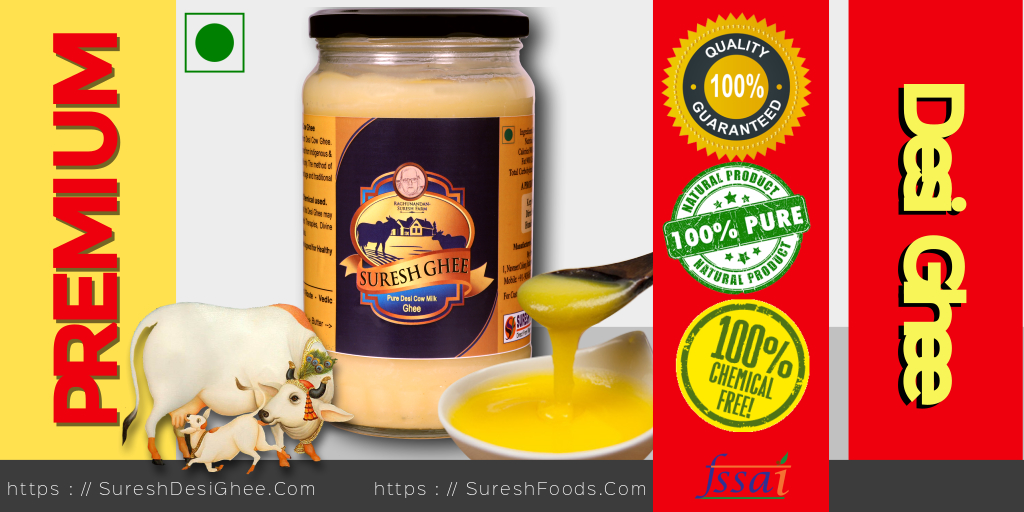

HOW TO USE DESI GHEE
There are several ways to incorporate desi ghee in your diet:
- Add desi ghee to your dairy-free elixirs.
- Use desi ghee in natural beauty care recipes.
- Spread it on your gluten-free bread, muffins, crackers or other baked goods.
- Melt it over steamed vegetables.
- Substitute desi ghee in any recipe where you’d normally use butter (baking, mac and cheese, popcorn, sandwiches, gluten-free toast, etc).
- Add it to savory or sweet oatmeal/porridge.
- Use it as a healthy cooking oil for high-heat cooking like stir-frying, roasting or sauteing.
- Boost flavour of gluten-free grains by cooking them with some desi ghee.
- Eat it off the spoon.

Read Our Blog- Desi Ghee for Sinus Problem| Ayurvedic Remedy |Benefits of Desi Ghee
HOW TO STORE GHEE
Since the milk solids have been removed, desi ghee is shelf-stable at room temperature (after all, there wasn’t refrigeration for most of our history). You can keep desi cow ghee in the pantry and it should stay good for months, unless you introduce extra moisture or ingredients – for example, spreading jam on your gluten-free toast and then dipping the same knife into the desi ghee, or swallowing a spoonful and then going back for more with the same spoon.
If you use ghee sparingly and won’t get through it in a few months to a year, or don’t want to worry about ‘double-dipping’, you can store your ghee in the fridge. It will firm up in cooler temperatures, but will soften if you take it out of the fridge a half an hour or so before you want to enjoy it.

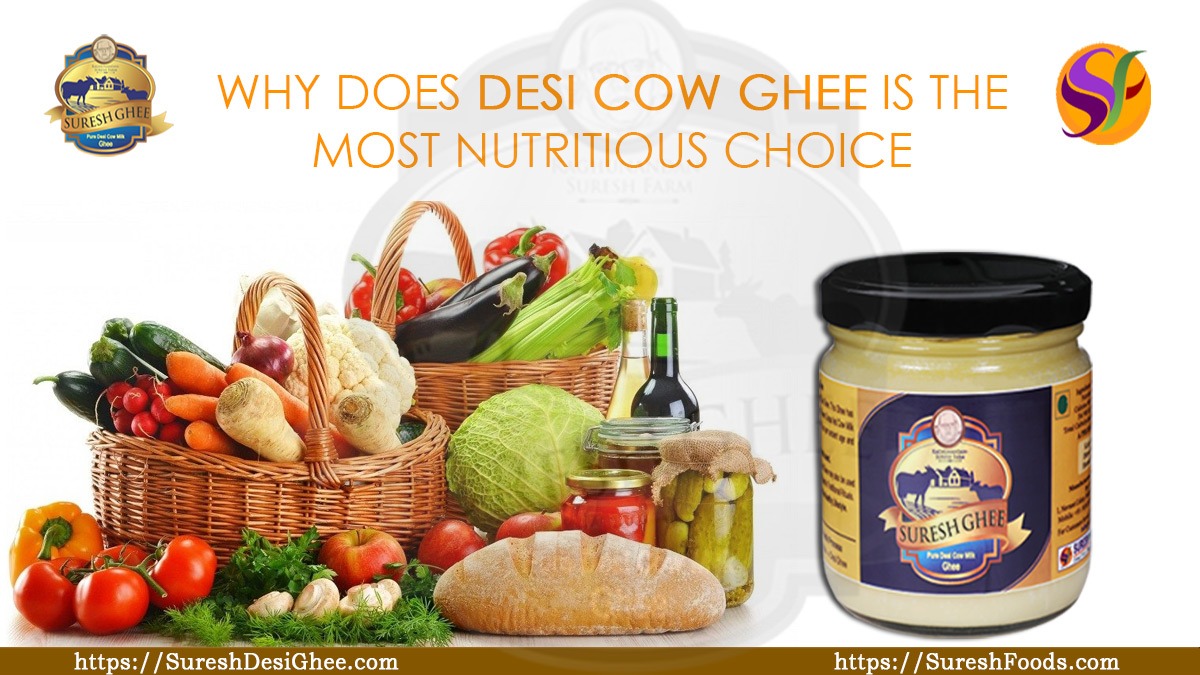
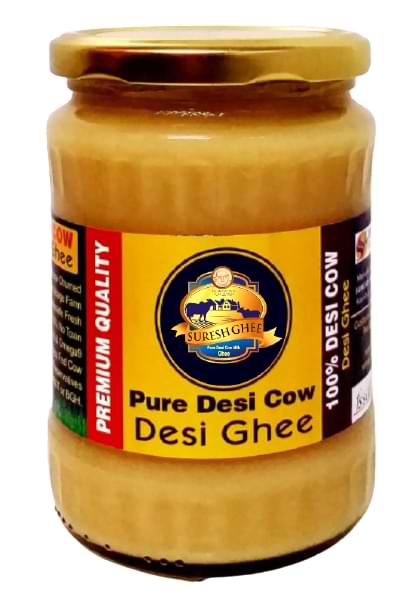
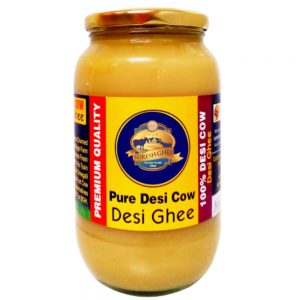
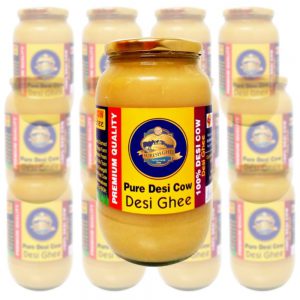
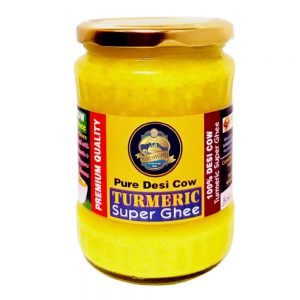
 WhatsApp us
WhatsApp us 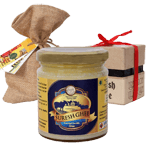
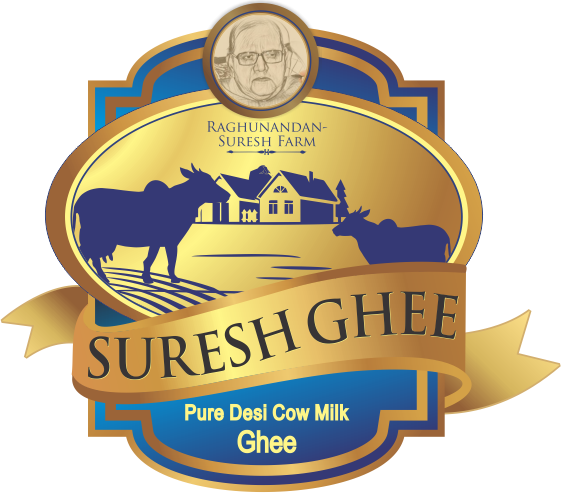
Naveen m...